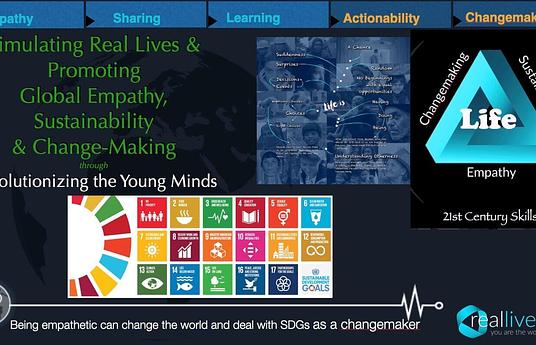In Chile, 60% of households have the internet. Eighty-six percent of young people report having a cell phone with internet access, mainly to play games (49%), watch TV series (40%), use social networks (33%) and listen to music (32%). Digital culture requires rethinking its use among young people, taking advantage of opportunities to develop cognitive and ethical competencies and skills.
Ciudadan@s Digitales is a virtual program that promotes e-rights, integral development, STEAM competencies and 21st Century skills in young Chileans, with emphasis on regions outside the capital. It offers two annual cycles of 13 virtual sessions facilitated by Fundación Ciencia Joven, where STEAM projects are developed. Mentoring is provided on idea maturation, entrepreneurship and innovation. Participants present their solutions in the annual virtual STEAM Fair, fostering the exchange of experiences. A minimum participation of 80% is sought in virtuality and a 3-day trip to Santiago (capital city) is organized to strengthen transversal competencies as well as links among participants, visiting places such as the Science Museum and with outdoor activities related to the program.
During 2 years, 4 cycles of 13 virtual sessions each were held, with an annual STEAM Fair in the Metaverse, in the SoWork platform and a 3-day face-to-face meeting in Santiago. The professional team included experts in STEAM and other related fields such as communication, sociology, psychology, etc. Eighty young people between 12 and 18 years old, mostly women, participated. They came from 14 communes in 9 Chilean regions, ensuring a wide territorial coverage. Families were involved and, subsequently, the young people applied their knowledge in their communities, together with those who, through appropriate instruments, also detected the challenge to be solved. Similar programs are being planned in Paraguay and other Latin American countries with partners and allies.
To become a participant, young people can contact Fundación Ciencia Joven and we invite you to stay tuned to our future calls! If you are another Foundation / Organization / Government and you wish to implement the Ciudadan@s Digitales Program, we invite you to contact us and we will explore the best way to work together.
.png)


